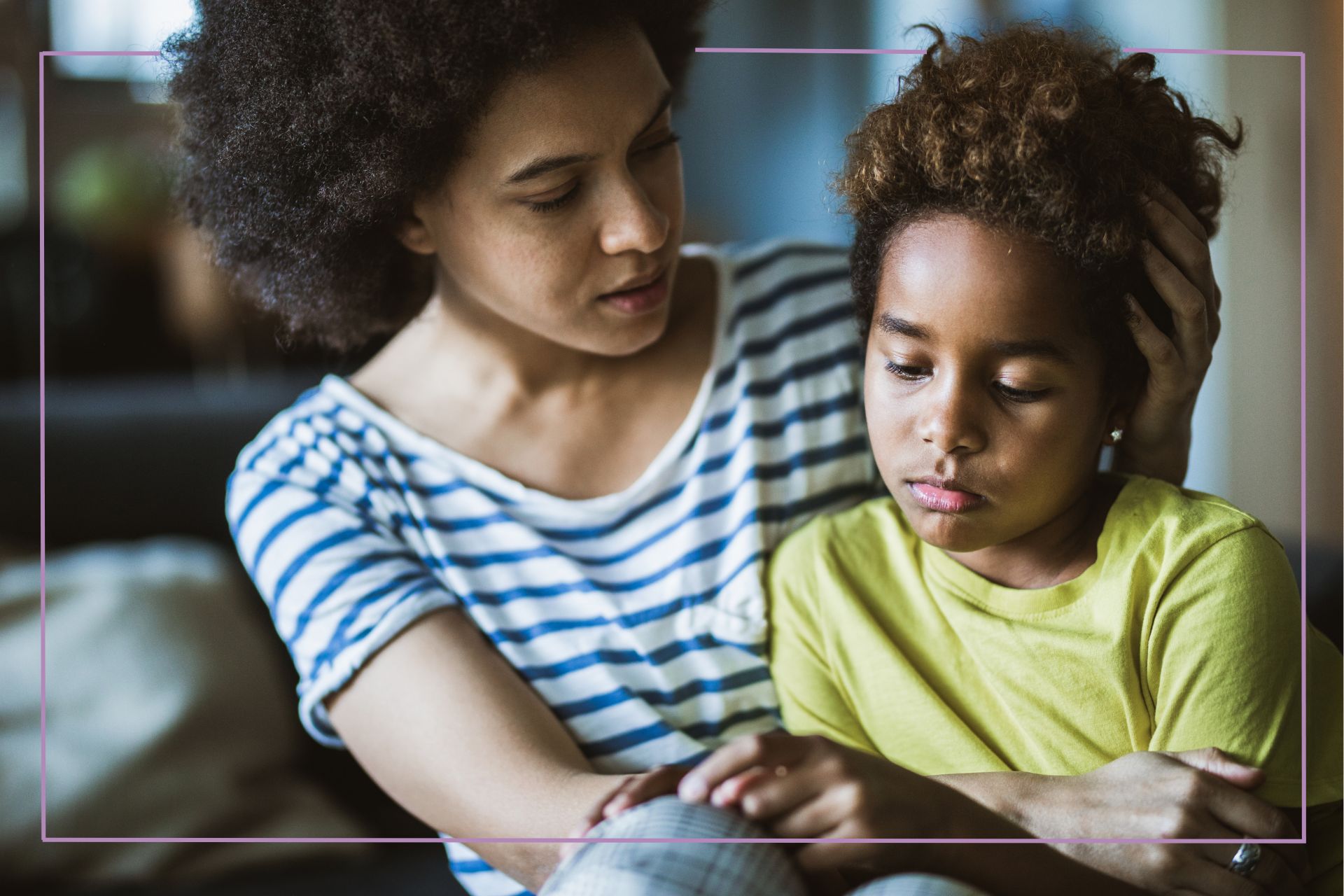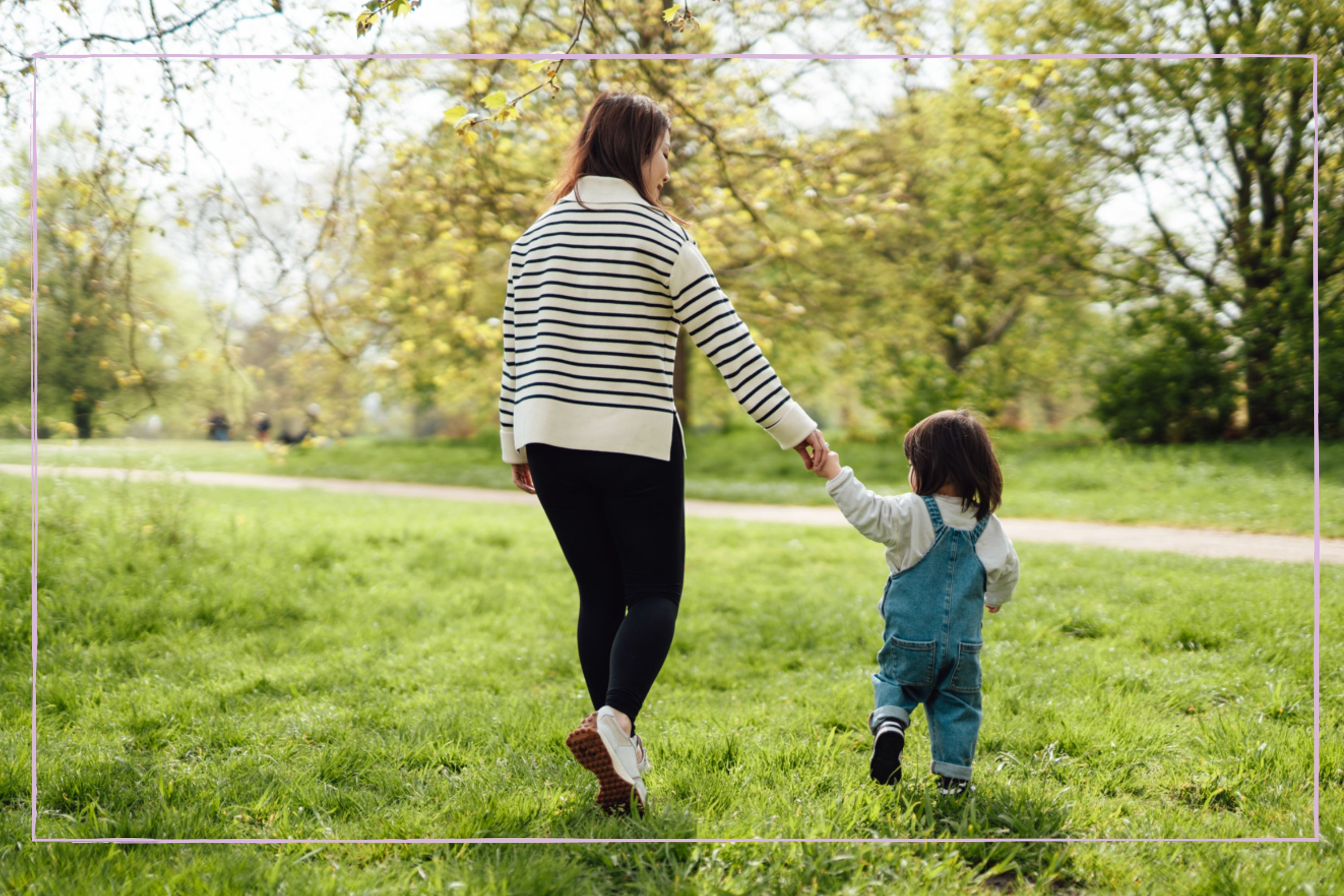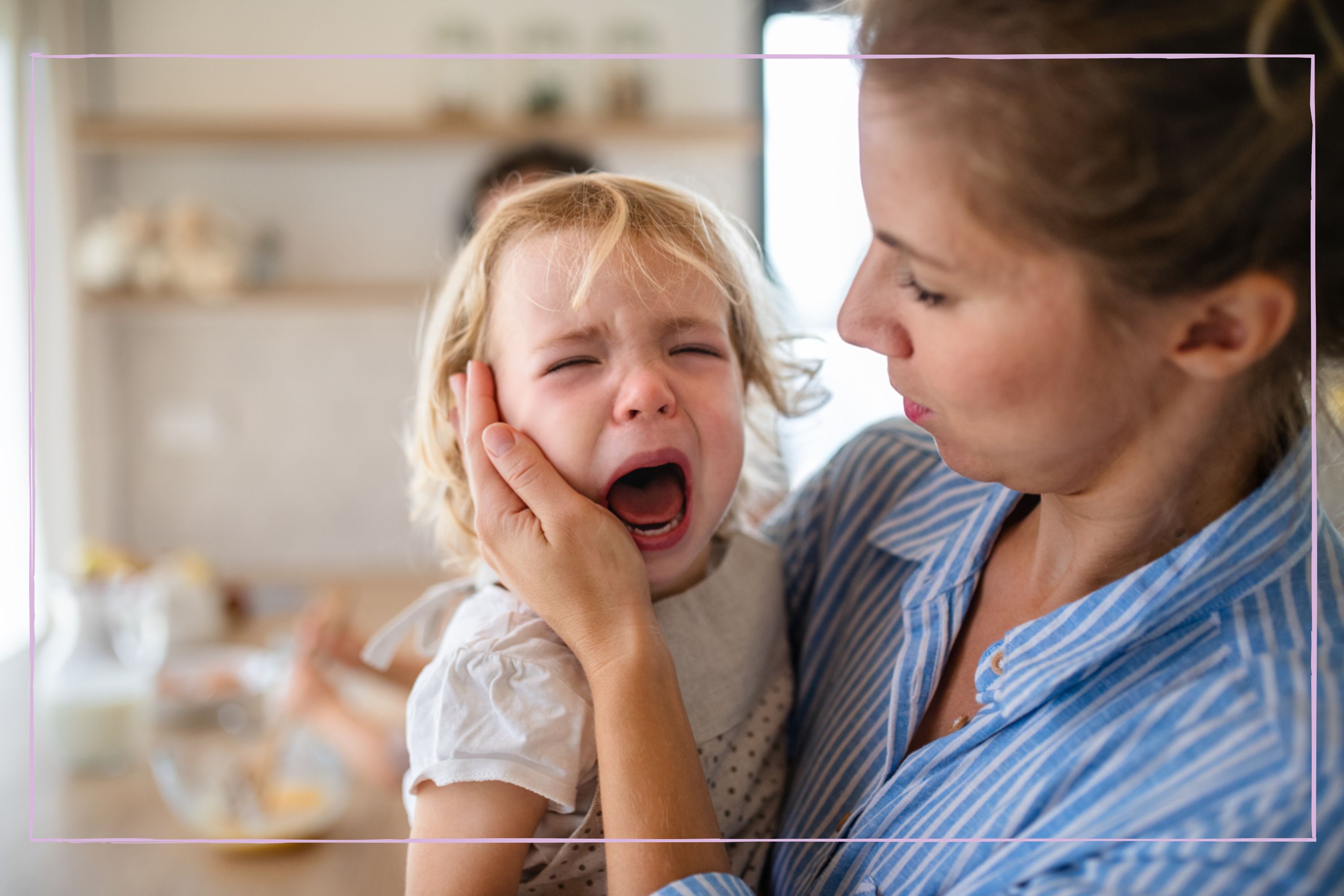How to support a child with ‘explosive’ emotions, by child psychologist Dr Becky (plus the top three tips you can try today)
Child psychologist Dr Becky Kennedy has over 1.3 million followers on Instagram, where she shares parenting tips

Have you noticed your child's emotions seem more 'explosive' than those of other children around them? If so, you may be parenting a deeply feeling kid - and one child psychologist has shared their tips on how to best support them.
No two children are the same - same as no two parents are the same, we all have different parenting styles - and to draw comparisons between children could lead to disaster for all concerned. However, when it comes to a child's development, both physically and emotionally, sometimes having a look at other kids their age can help you figure out where your child sits, especially if you want to raise a confident kid.
One factor that may stand out is a child's emotional development. Is their behaviour vastly different from that of their peers? Perhaps it could be described as more intense, more charged, or more 'explosive.' Sometimes it can just be personality or a phase, but you might also have what child psychologist and author Dr. Becky Kennedy calls 'a deeply feeling kid.'
In this article, we look at what the signs and traits are of a 'deeply feeling kid' what the means and how to support a child with the explosive emotions that come with that.
How to support a child with ‘explosive’ emotions
- Validate their emotions
- Leave space and permit for kids to have these big feelings
- Embrace the 'two things can be true mindset
1. Validate their emotions - This may sound like telling you child 'I believe you' when they tell you they hate something. Dr Becky suggests trying a 'There's something about this that XYZ' and fill in with one of these phrases;
- doesn't feel good to you
- isn't how you wanted it to be
- isn't what you expected
- you wish were different
Saying this validates that we see our child's discomfort, that we believe there's some explanation for it while taking away our need as the adult to 'fix' or even understand exactly what is so upsetting in the first place.
GoodtoKnow Newsletter
Parenting advice, hot topics, best buys and family finance tips delivered straight to your inbox.
2. Leave space and permit kids to have these big feelings - We want the next generation to know and have all the feelings, so that they can learn to deal with all the feelings. So though it might be easier for parents to immediately try to make their children feel better if they're sad, frustrated, or jealous, it will help kids in the long run if they learn early on how to cope with tough feelings.
3. Embrace the 'two things can be true' mindset - The 'two things can be true' is the ultimate game changer, for all corners of your life. It's a tactic that acknowledges the rules set by a parent, while also acknowledging the child's feelings.
How often have parents dealt with bedtime by simply taking away the tablet with a 'Because I said so,' this doesn't help your kid deal with their feelings in the long run. Instead, Dr. Becky suggests saying something like, "Two things are true: You're allowed to be upset, and it's bedtime now. So let's plan what you're going to watch tomorrow instead."
What is a 'deeply feeling kid'?
periodsThese kids tend to have bigger emotions for longer periods of time compared to other kids, and can often be seen as the 'naughty' kid.
Taking to Instagram, Dr. Becky, known as drbeckyatgoodinside on social media, shared, "Some kids, I call them Deeply Feeling Kids, tend to have more explosive moments, take longer to calm when upset, and tend to push us away in the moments they struggle the most." The first sign of a deeply feeling kid, she shares, is that they may 'push you away when they need you the most.' She explains, "You know that they're upset, you go to offer support, and they scream 'leave me alone!'"
The second sign is that they have huge reactions to seemingly small events. "This doesn't mean they're dramatic, this means they're desperate to be taken seriously," Dr Becky shares.
The third and final sign is they blame you for things that are not your fault. "Maybe they go and try out for soccer, they don't make the team, they come home and tell you, 'You made me try out, I never wanted to in the first place.' This relates to the shame that they're prone to feeling."
A post shared by Dr. Becky Kennedy | Parenting (@drbeckyatgoodinside)
A photo posted by on
So what do you do if you notice all three of these traits in your child? Before delving into any solutions, Dr Becky reminds parents, "If you have a deeply feeling teen, nothing is wrong with you and nothing is wrong with your kid."
While there are ways to teach your kids how to manage their anger and expert tips for teaching kids emotional intelligence as well as solutions to break the cycle when your kid is being rude, these may not work with a deeply feeling kid who needs a different type of support.
Speaking to PureWow, Dr Becky recommends something a little unconventional. In order to deescalate the overwhelming feelings a deeply feeling child has, the parent needs to be present but not involved.
She explains, "You do basically nothing. You can't say anything in that situation, the shame is so high. It’s important to be there, because your presence actually communicates to them, I’m going to keep you safe and I can stand you when you're like this, so you're not so bad after all.”
For tips on raising resilient kids, we've got you covered. Talking about challenging subjects with children can be hard, and we've shared therapist-back tips relating to talking to kids about cancer, and how to broach the subject of divorce.
Charlie Elizabeth Culverhouse is a news writer for Goodtoknow, specialising in family content. She began her freelance journalism career after graduating from Nottingham Trent University with an MA in Magazine Journalism, receiving an NCTJ diploma, and earning a First Class BA (Hons) in Journalism at the British and Irish Modern Music Institute. She has also worked with BBC Good Food and The Independent.
-
 The 'incredibly helpful' 30-second rule – liked by nearly 2 million people – that your kid needs to know about
The 'incredibly helpful' 30-second rule – liked by nearly 2 million people – that your kid needs to know aboutThis useful piece of advice is worth remembering for all of us, not just our children
By Adam England Published
-
 What is ‘sturdy parenting’? Child psychologist Dr Becky explains the benefits of this technique
What is ‘sturdy parenting’? Child psychologist Dr Becky explains the benefits of this techniqueIf you're at a loss when it comes to disciplining your kids, sturdy parenting might help - and it's approved by child psychologist Dr Becky.
By Ellie Hutchings Published
-
 3 tips to set screen time boundaries from parenting experts Dr Becky Kennedy and Professor Emily Oster - and #1 is an important reminder
3 tips to set screen time boundaries from parenting experts Dr Becky Kennedy and Professor Emily Oster - and #1 is an important reminderStruggling to set screen time boundaries with your kids? Parenting experts Dr Becky Kennedy and Professor Emily Oster have shared three top tips.
By Ellie Hutchings Published
-
 Could 'lazy parenting' be the next big thing? 2 psychologists share why it can be beneficial for development, but not everyone agrees
Could 'lazy parenting' be the next big thing? 2 psychologists share why it can be beneficial for development, but not everyone agrees'We need more lazy parents' and here's why, according to two child psychologists
By Ellie Hutchings Published
-
 Parents, do you know what H.E.L.P. stands for? Psychologists swear by this acronym to navigate those tough parenting moments we all face
Parents, do you know what H.E.L.P. stands for? Psychologists swear by this acronym to navigate those tough parenting moments we all faceRemember: Halt, Empathy, Limits, Proximity...
By Ellie Hutchings Published
-
 Sticker charts 'don't work in the long run' says psychotherapist - try these 8 tips to teach kids intrinsic motivation instead
Sticker charts 'don't work in the long run' says psychotherapist - try these 8 tips to teach kids intrinsic motivation insteadOne expert has explained eight things you can do as a parent to help your child develop intrinsic motivation - and it means abandoning the sticker chart.
By Ellie Hutchings Published
-
 Reflective parenting could help your teenager manage their big emotions, new research shows - here are 5 steps to try
Reflective parenting could help your teenager manage their big emotions, new research shows - here are 5 steps to tryThe teenage years are tough for everyone involved. But research has suggested that an approach known as 'reflective parenting' can be the key to reconnecting.
By Ellie Hutchings Published
-
 These 5 'game changing' phrases can teach your children about the mental load, according to a psychologist - and it could set them in good stead for adulthood
These 5 'game changing' phrases can teach your children about the mental load, according to a psychologist - and it could set them in good stead for adulthood"Change at home can change society"
By Ellie Hutchings Published